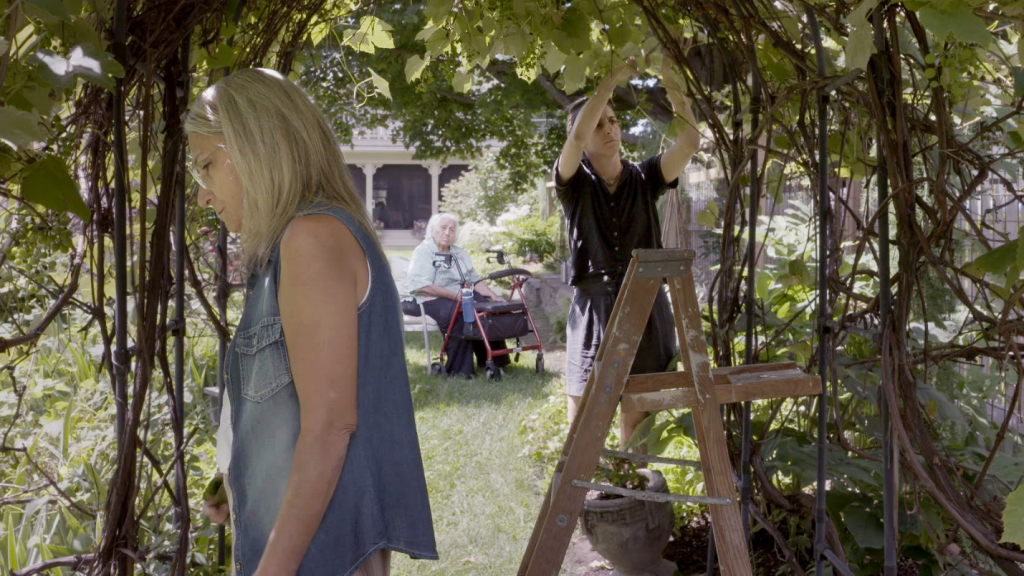
JOONAM – Finding identity as an immigrant woman
We all eventually turn into our mothers.
It’s what nature taught us. The older we grow up, the more we see our mothers in us, and us in them.
And the three generations of Iranian women in this film, are no different.
It had to take an innovator, a pioneer like Sierra Urich, a filmmaker, to unravel the mystery of those three women, and bring their different worlds together. It had to take a brave woman like her to bring women’s stories to the table and unwrap the cellophane, the layers and layers of dust that women use to cover up their lives and put it out into the world.
The link was the mother, Mitra, who was the heart of both languages, the bridge between two distinctly foreign worlds. Sierra represented the new world, while the grandmother represented the old world. Mitra brought these two worlds together, through a shared love between the three women of storytelling.
I felt Sierra’s isolation in her language barrier bubble, how her grandma, Behjat was happily enjoying the culture she held close to her heart, how comfortable Mitra was freely moving from one culture to the other, her peace and easiness evident through her daughter’s camera. Sierra on the other hand was the one most bothered, or uncomfortable in her skin. I related to her feelings of difficulty adjusting to her mother and grandmother’s heritage or their adaptation to their lives. Mitra and Behjat seemed in harmony, while Sierra seemed lost and grappling with her sense of self. How easy it used to be for the older generations, while we are usually stuck with how we view ourselves, how the world perceives us, and what we want from the world.
Sierra’s use of imagery and poetic interceptions threw me in the middle of the culture, the mesmerizing stories that her grandmother told as the backdrop to an already active mise-en-scène, there was constant movement and a powerful sense of space and presence in Sierra’s film, and that allowed the viewer to enter her world at the pace and time that she fully decided.
JOONAM felt like a journey through womanhood, as each woman discovered her path individually from the other, but brought together they navigated it together as one. In different cultures, times, and ideologies, all three women had their own battles to conquer, wounds to cover, and intergenerational trauma to come to terms with. Sierra perfectly gave her subjects the air to breathe and exist in an environment without judgment or disdain. It was the perfect safe space for these women to share stories and bond over their family history as they each tread a different spot on the spectrum of life. Sierra didn’t overuse intimate feminine moments as breaking points for her narrative, each point was present in the right spot, like her mother having her hair done at the hairdresser’s and getting bombarded with serious interrogative questions, or her grandmother beautifully recounting the time she had her first period. None of it felt forced or created a false sense of feminine mystique but rather a milestone in an intricately structured narrative, not built on women’s bones, but from their tales around the -hypothetical fire- as they rebuild each other up, bones and all.
